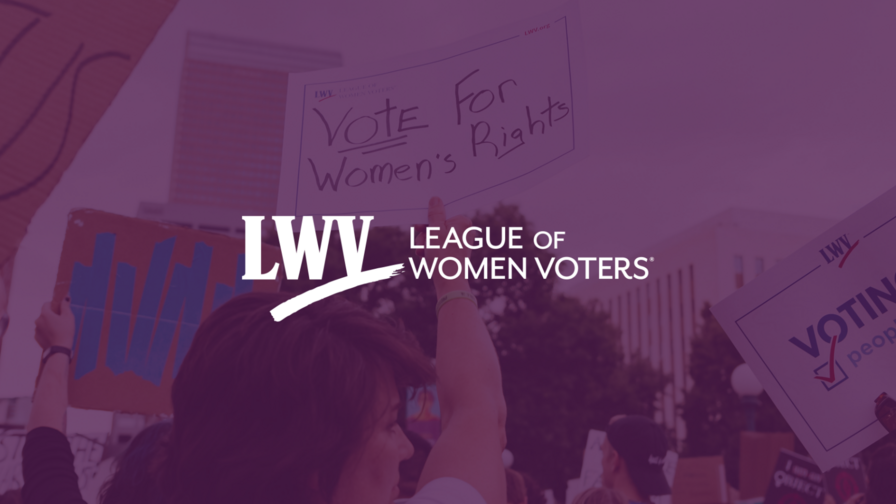Navigating Restricted Reproductive Care as a Latina
Note: While this blog frequently uses the term Latinas to refer to women impacted by reproductive rights restrictions, this issue impacts Latino/a people across all gender identities.
This blog was written by former intern Claire Avalos.
Mi Cuerpo, Mi Decisión
In the past decade, we have seen nonstop attacks on reproductive freedom in the United States.
At the time of publication, 14 states banned abortion at conception, 11 banned abortion before viability, and many more had restrictions that reduced people’s access to care, such as medically unnecessary waiting periods. As we discuss the destructive impacts this has on the lives of those who seek reproductive health care, it is important not to gloss over how these attacks disproportionately affect women of color. This blog will focus on the Latino/a community.
Stay Updated
Keep up with the League. Receive emails to your inbox!
How Latinas Are Impacted By Reproductive Care Access
In the United States, nearly 6.7 million Latinas live in the 26 states that have banned abortion or will likely ban abortion. This group encompasses 43% of all Latinas ages 15-49 and represents one of the largest groups of women of color impacted by current or impending bans. Additionally, as a group with a substantial share of women of child-bearing age compared to non-Hispanic white women, Latinas are statistically more likely to be impacted by abortion restrictions than their white counterparts.
Latinas, as an ethnic group, encompass a multitude of races and backgrounds that contribute to the struggles they face. The Latino community is not a monolith, and the term should not be used to gloss over the unique struggles individuals experience because of their intersectional identities, such as Afro-Latinas.
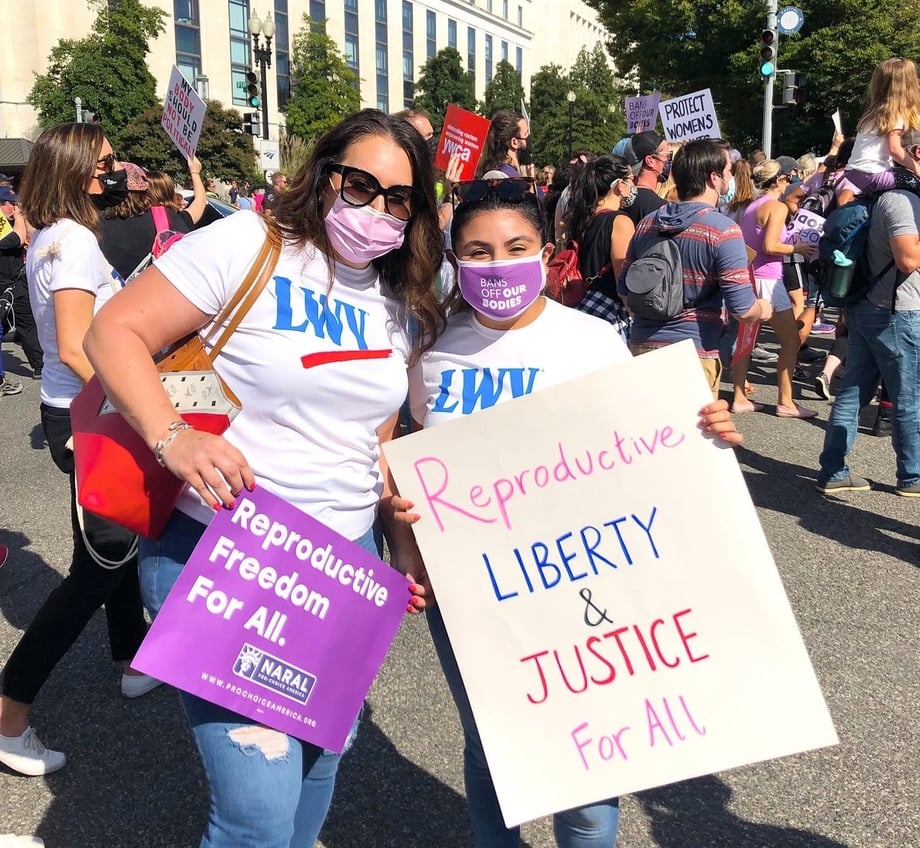
With this said, many Latinas in the United States face similar barriers in their attempts to access reproductive health care. Due to the rise of restrictions on bodily autonomy and abortion services across the country, Latinas may also face enhanced socioeconomic obstacles.
This blog explores what factors make this community vulnerable to the harm imposed by restricted reproductive health care, how that harm causes both emotional and financial distress, and what can be done to fight against this injustice.
Barriers to Reproductive Health Care
Economic Instability
According to the National Partnership for Women & Families and the National Latina Institute for Reproductive Justice, more than 3 million Latinas living in the 26 states that have banned or are likely to ban abortion are considered economically insecure. Coupled with the fact that nearly half of that same population are already mothers, the threat of being forced to bear children while facing economic instability looms large.
Being denied reproductive health care not only strips these women of their bodily autonomy, but denies them opportunities for family planning and majorly impacts the livelihoods of both them and their children. These women are not being provided with the opportunity to choose the trajectory of their lives. Instead, a woman who wants to get a degree but can’t because she’s forced to carry a child loses an educational opportunity. A person who wants to work full-time but needs to provide childcare for new children loses opportunities to pursue her career of choice. Parents who need to save money to care for their current families lose opportunities to save up when they’re forced to invest that money in the formidable costs of pregnancy and child-rearing.
Medical Insurance
Even if these individuals can find abortion care, the lack of affordable options proves to make it increasingly difficult for them to receive the care they are looking for.
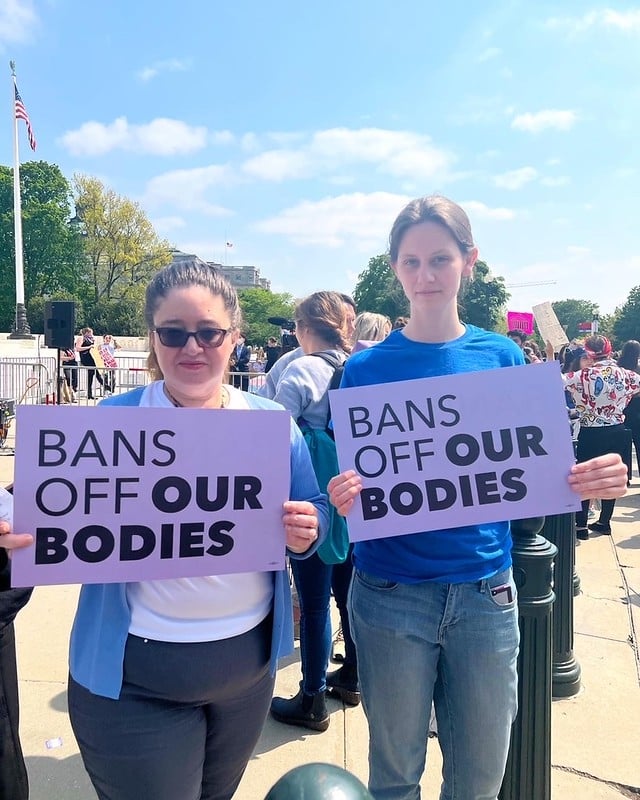
Shortly after the US Supreme Court affirmed an individual’s constitutional right to have an abortion without state interference in Roe v. Wade (1972), the Hyde Amendment was introduced and soon passed by Congress. This amendment prohibits the use of federal funding for abortion, except in cases of rape, incest, or endangerment to the life of the pregnant individual. This prevents people from using their health insurance to cover most abortion services if they are enrolled in Medicaid, Medicare, the Indian Health Service, or the Children’s Health Insurance Program (CHIP).
About 27 million Latinos in the United States utilize Medicaid or CHIP for health coverage. From this, about one in four Latinas ages 18-64 are covered by Medicaid. With such a large percentage of adult Latinas using Medicaid and other federal health insurance programs, the Hyde Amendment’s restriction on using federal funding for abortion care that doesn’t fall into the cases of exceptions significantly impacts the ability for Latinas to get the care they need.
Socioeconomic Factors
Insurance coverage isn’t the only financial barrier posed to Latinas: the socioeconomic disparities between Hispanic women and women in other racial groups create numerous obstacles in seeking reproductive health and abortion care.
In 2023, the National Partnership for Women and Families found that Latinas still face significant wage disparities, making just 52 cents for every dollar earned by a non-Hispanic white man (white women, in contrast, make 73 cents for every white man’s dollar). These numbers are even worse for Latina mothers, who make 47 cents for every dollar made by a white father. These low wages make it difficult for Latinas to live comfortably, much less have extra funds for abortion — as of 2023, the average cost of an abortion ranged from $500-700, excluding travel expenses or missed wages.
This is combined with Latinos being disproportionately represented in lack of access to paid sick days, meaning that on top of struggling to afford an abortion, they may face difficulty taking time off work to get one, particularly if they need to travel to pursue out-of-state care.
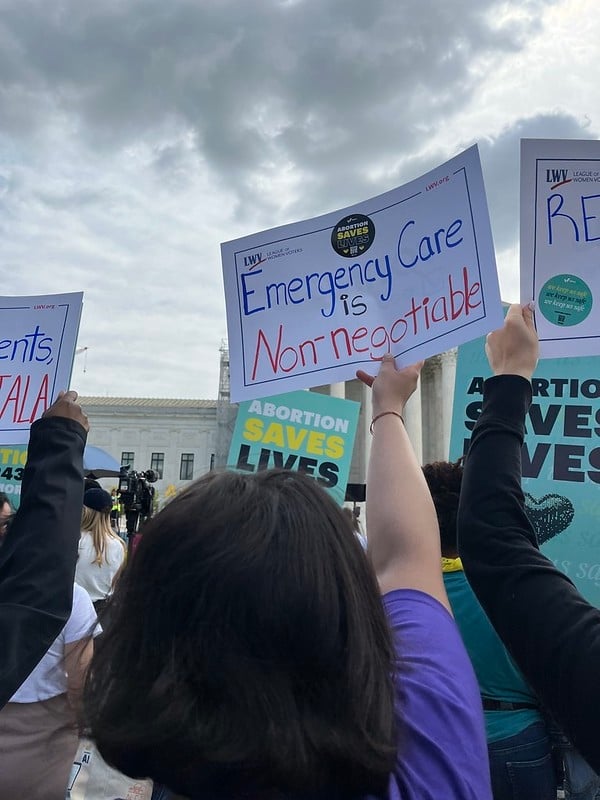
Latinas, particularly those living with low incomes, have also been increasingly targeted by crisis pregnancy centers (CPCs). CPCs are facilities run by anti-abortion nonprofits designed to appear as legitimate health care clinics. In reality, they persuade women not to get abortions and provide misinformation about abortions, birth control, and other reproductive health services. These centers primarily target low-income pregnant individuals and women of color by advertising free pregnancy-related services.
As previously mentioned, many Latinas struggle to afford abortion care due to federal restrictions and personal income. However, these CPCs advertise themselves as affordable alternatives to legitimate abortion care centers. They not only share misinformation about abortions but have been known to use emotional manipulation and delaying tactics to prevent people from receiving abortion care until it is too late. Through crisis pregnancy centers, the socioeconomic disparities of Latinas are perpetuated, and false narratives around abortion only continue to grow.
Being Undocumented and Seeking Reproductive Care
The 7 million undocumented Latinos in the US face yet another set of challenges when in search of abortion care or other reproductive health services.
Support people in your community by joining one of our 700+ state and local Leagues.
Many states with restrictive abortion policies, like Texas, Arizona, and Florida, are also states with high numbers of undocumented Latina immigrants. It's already difficult for people in these states to travel to receive abortion care; many laws targeting undocumented immigrants make this worse. Most states prevent undocumented Americans from owning driver's licenses, making it impossible for them to drive into areas where abortions are accessible.
How Can You Support Latino/as Seeking Reproductive Care?
It's critical that the Latina community is not overlooked when it comes to discussing reproductive rights and health care. Throughout our country's history, Latinas have faced many attempts to silence and control our voices and bodies. Despite current laws and harmful policies that aim to perpetuate further the inequities the community faces, there are ways in which anti-abortion efforts can be counteracted.
Given the crackdown on abortion and reproductive health services across the United States, especially in states with high Latina populations, it can feel daunting to try to overcome all the challenges posed against us. However, by continuing efforts to block anti-abortion legislation, fact-checking misinformation, and advocating for reproductive care, we have the power to rewrite the narrative.
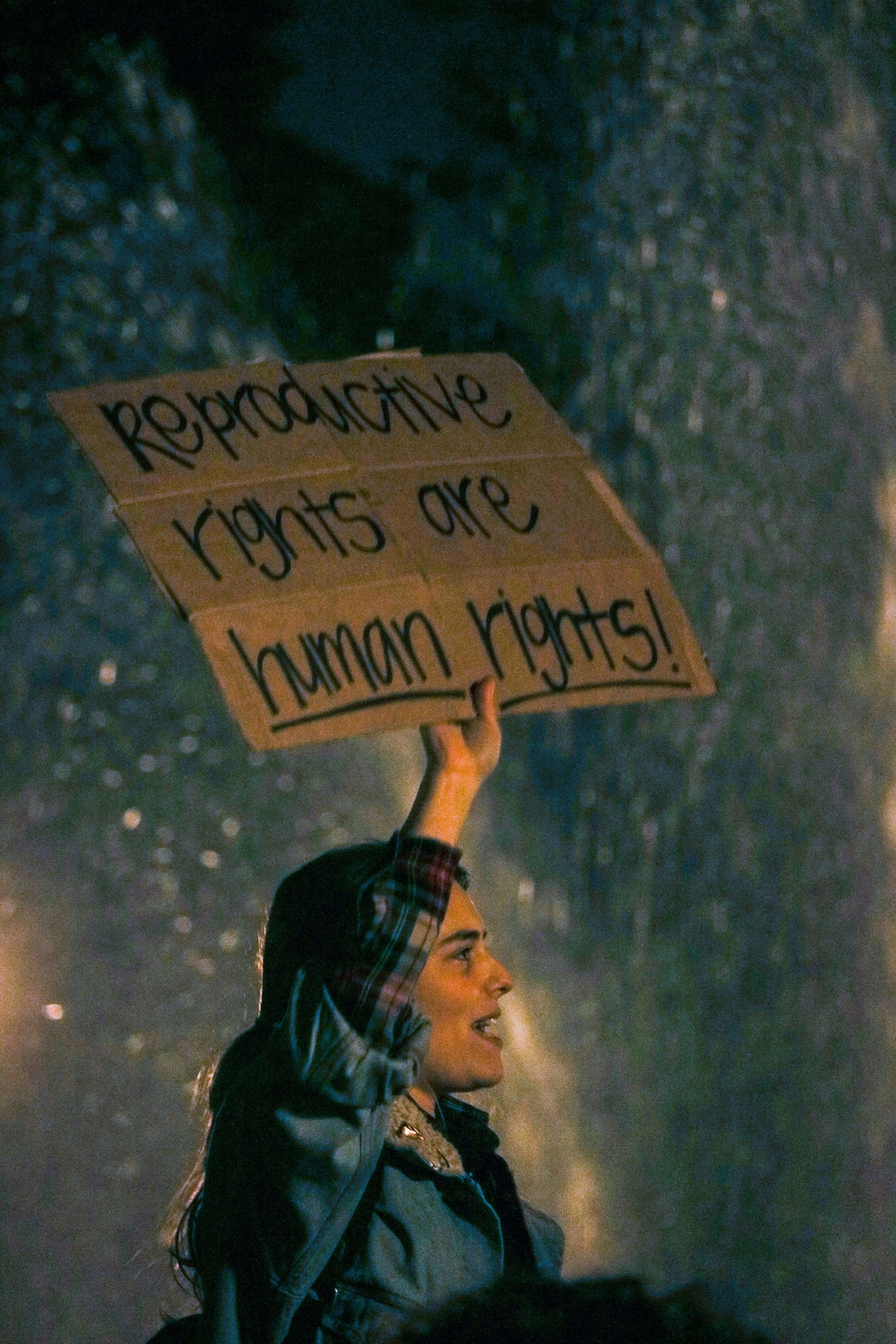
Fighting for all instances of abortion to be covered under Medicaid would significantly benefit the Latina community. Furthermore, enshrining the right to have an abortion in state constitutions would mean all women, especially Latinas, would be ensured they have consistently protected access.
The League of Women Voters of the United States believes that public policy must affirm the right of privacy of the individual to make reproductive choices."
It is the duty of elected officials and policymakers to ensure that all individuals are affirmed the right to privacy to make their own reproductive choices. With this, LWVUS also believes that every US resident should have access to a basic level of quality health care at an affordable cost, including abortion.
Ways To Take Action
- Follow the League of Women Voters' materials and work on reproductive rights;
- Support reproductive rights organizations and abortion funds across the nation, such as Planned Parenthood or your local abortion fund;
- Join your local League to learn about and support efforts to protect and expand access to reproductive choices in your area; and
- Help destigmatize reproductive health care by sharing your story, or uplifting the stories of people who would like to share.
The Latest from the League
This blog examines United States v. Idaho, a federal challenge to the near-total state abortion ban passed in Idaho; it reached the Supreme Court in 2024. We explain the laws at issue, how the case came before the US Supreme Court, and the implications of the Court’s divided decision that sent the case back to the district court.
The Supreme Court recently ruled on a case around mifepristone, a drug commonly used for medication abortion. Their decision preserves access to one of the most common, effective, and safest forms of abortion.
It’s Hispanic Heritage Month, and we’re putting you to the test — how well do you know these Latina icons? Take this quiz!
Sign Up For Email
Keep up with the League. Receive emails to your inbox!
Donate to support our work
to empower voters and defend democracy.





